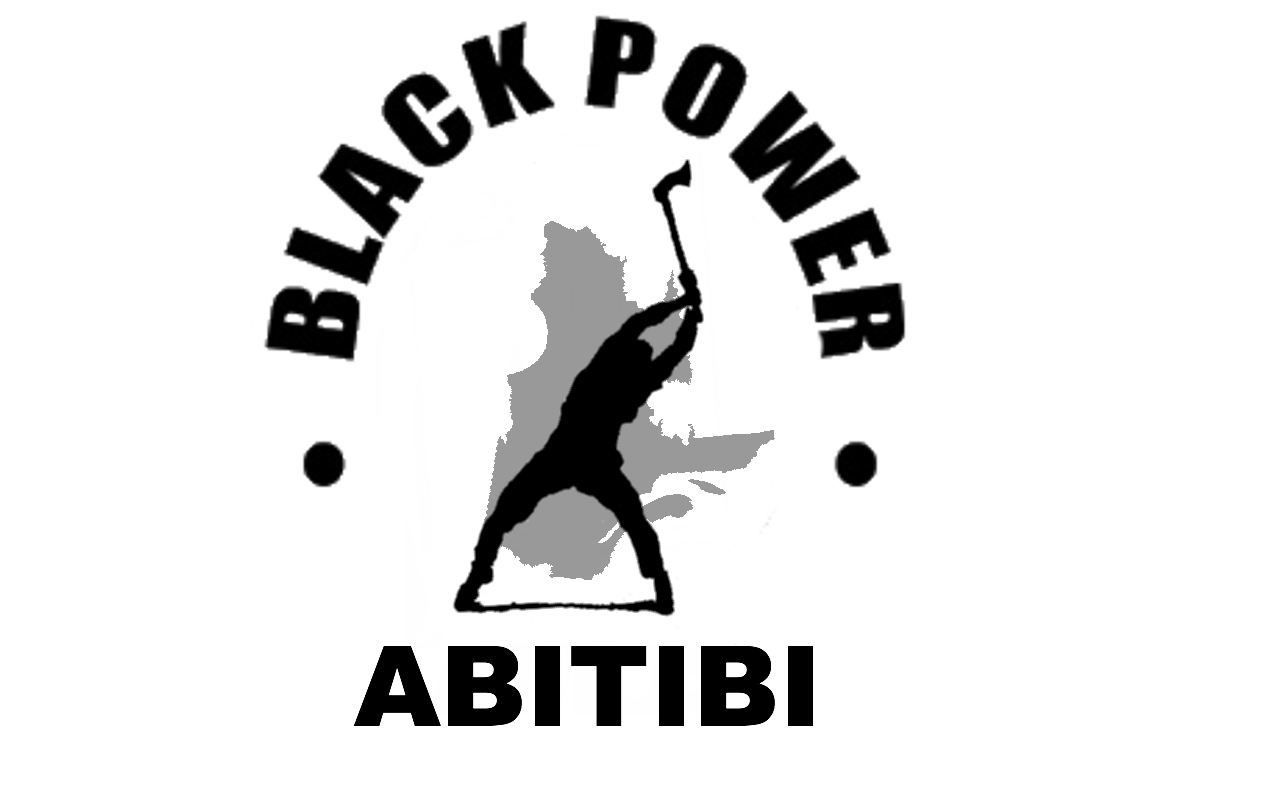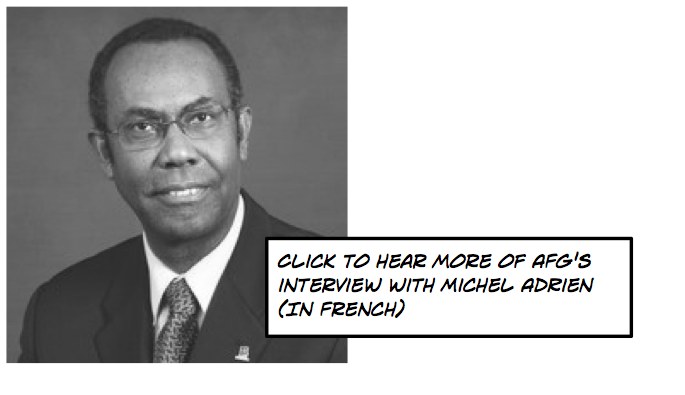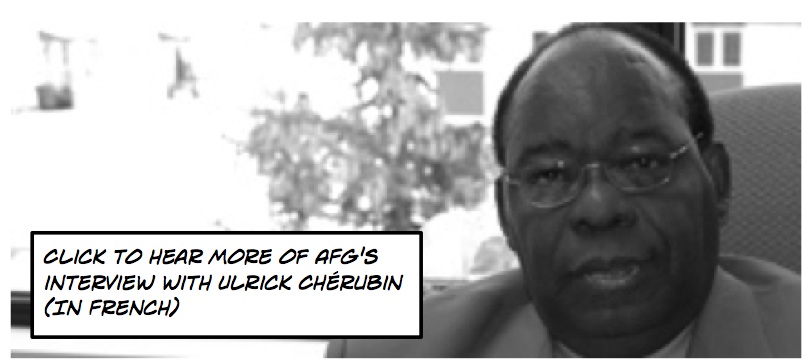The Black Mayors of Québec’s Logging Country

Special Black History Month edition AngryBoys and Girls. It’s the story of Michel Adrien and Ulrick Chérubin, two buddies from the town of Jacmel in Haiti who both ended up as mayors of Mont-Laurier and Amos, two lumberjack towns of Québec’s North West.
The story of both men starts in the late 60 and early seventies when a whole generation of scholars, professionals and intellectuals was chased out of Papa Doc Duvalier’s Haiti. Quite a few of these men and women came to Québec where they found a surprisingly familiar society that spoke French and shared their catholic faith. Québec was also a society that, unlike Haiti, was now moving on after the long reign of it’s own tyrant, Maurice Duplessis.
Michel Adrien came to Québec in 1969 and took a job teaching high school physics for a year in Mont-Laurier, a small city of some 13 000 souls in the Laurentians. Québec’s Quiet Revolution had lead to massive education reforms and there were many jobs jobs for all those who were willing to do a tour of duty in the woods.
He remembers the Mont-Laurier of the late 60’s as an effervescent regional hub. Black people were rare, but not unheard of as many came to work in the many government agencies in town.
« What was funny was the reaction of parents when we has PTA meetings. The students, for the first few weeks had a natural curiosity that lead them to ask questions, but once they got their answers, I’m the teacher. That’s it. Often they would forget to even mention it to their parents who would freeze when they first saw me. But I’m talking about the first few years, here. Young people have a wonderful ability to adapt. »
Adrien made friends and signed up for a second year. Then a few more. He met a girl. Classic. He founded the city’s astronomy club, the bike club and was eventually elected union representative, first at his school, later at the regional level. « You have to remember the era was one of major union militancy in Québec. That position had some kind of power. »

Michel Adrien’s childhood friend, Ulrick Chérubin, came to Canada a few years later, to a New Brunswick seminary where he studied to become a priest. The seminary closed and he moved to another seminary, in Trois-Rivières. There he met a woman that asked him he had ever thought of being a father instead of a priest. « I told her I had never considered it », he lied.
After leaving the Church, which was a very fashionable thing to do in those years in Québec, Chérubin recycled his theology credentials into a teaching career. Like his friend, he headed north, to the small city of Amos in Abitibi. Amos is almost exactly the same size as Mont-Laurier and is also dependent on the forestry industry.
Chérubin’s political career started after retirement, following a dream in which his deceased mother reprimanded him for watching to much TV. In 2002 he was elected mayor with an ultra-thin majority of only 50 votes. A year later his childhood friend Adrien was elected mayor of Mont-Laurier.
In 2005 Ulrick Chérubin was re-elected, his time with a record-breaking 84% of the votes.
Québec’s Haitian community is usually associated with the urban neighbourhoods of North East Montreal, but there is actually a surprisingly long history of Haitians not only living , but becoming political leaders in Québec’s and French-Canada’s remote communities.
The first black mayor in Canadian history was Dr. Firmin Monestime, an Haitian who was elected in the little bilingual logging community of Mattawa in Northern Ontario in 1964, only one year after Martin Luther King’s march on Washington. The first black mayor in Québec was René Coicou, another Haitian who in 1973 was elected in Gagnon, an ultra-remote mining town half way between Montréal and Irkutsk that was shut down and evacuated in 1985. Another Haitian political figure is the Parti québécois’ Jean Alfred, the first black member of Québec’s National Assembly, elected in the Outaouais ridding of Papineau in 1976.

Could being one of the few visible minorities in an area where people from a different postal code are foreigners actually be an advantage in the highly public profession of politics?
« I don’t think so », says the mayor of Amos. After some years, people don’t see my colour. They see Ulrick, a guy who’s active in the community. I forget I’m black. »
« I would say it can be an advantage », the mayor of Mont-Laurier disagrees. « People go through three phases. First, I’m the Black guy. Then I’m Monsieur Adrien. Then I’m Michel. » That said, Montrealers might find it odd to find a black mayor in Mont-Laurier, but his constituents got over his skin colour a long time ago, he swears. « When I’m in a public forum, talking about Mont-Laurier, no one finds it caricatural or unusual. »
Would Monsieur Adrien or Monsieur Chérubin consider provincial or federal politics? « If I was seven or eight years younger », muses Chérubin. « I have more affinities with the PQ. What happened to me is that in my riding we have François Gendron [of the Parti Québécois] who’s been there since 1976. So I don’t think I’ll have a shot at that seat as long as he’s there. »
The 1970’s were a time of tremendous political and social upheaval in Québec and there were plenty of opportunities for adventurous immigrants like Michel Adrien and Ulrick Chérubin, especially since, at that time, the Haitian community had yet to set deep roots in Montréal, or anywhere else. But times have changed. The forest industry is in crisis. There are few jobs in Amos and Mont-Laurier, today. For immigrants or anybody else.
« We used to have a very cosmopolitan society », reminisces Michel Adrien. We even had an Afghan in Mont-Laurier. But they’re gone. Of my group that came in 1969, I am one of the few who stayed. » He talks of recent statistics that suggest that Mont-Laurier is one of the Canadian cities of over 10 000 people with the fewest immigrants in Canada. « Certainly the fewest immigrants of any city where the mayor is an immigrant! »